Frequently Asked Questions
Here are some questions that are asked frequently asked. If you have additional questions, please email info@ideamath.org
- What sets IDEA MATH apart from other programs
- Are all classes aimed towards math competitions
- What are the course structures of the program
- What is the general teaching style
- What is the general class size or teacher/students ratio
- Is there an admission exam for the program
- What determines which class a student is placed into
- After I (the student) am placed into a class, can I move in between the course during a particular program
- How am I (the student) evaluated? Are there any evaluation tests
- I (the student) am a retuning student, what course shall I take in the coming program? Can I skip a course
- Who shall I meet at IDEA MATH
- What is the difference between IDEA MATH curriculum and what my school curriculum?
Program Information
- How do I create an IDEA MATH account?
- How do I register to an IDEA MATH program?
- How do I register to an IDEA MATH Placement Test?
- How do I make a payment?
- What to fill when I make a payment?
- What do I do if I forget my log in information?
- How do I update my profile?
- How to get the receipt and IDEA MATH Tax ID?
Registration and Payment
- Do you still have any opening for your 2nd session program? when can we take the placement test ? where and how much?
- Due to some other activities and/or the lateness of the enrollment, the applicant may have to miss a few classes. is there a way to make it up? Or refund?
- Do you assign homework besides the weekly 3-hour classes? If so, usually how much time may need to spend to do the homework?
- If I missed the placement test and I still want to register, what should I do?
Program Specific FAQ - Year Round In-person
Register and Payment
Q1. How do I create an IDEA MATH account?
Please make sure to create an IDEA MATH student account, input complete and up to date background info in the student account.
We contact students and parents based on the contact info in the account, and we make initial course placement and/or placement test decisions based upon general academic info in the account.
For future reference, include student's full name, IDEA MATH ID, intended program and program location in your email subject.
Click Login/Create an account in the left navigation pane of this page. Follow the instruction and please make sure fill all the required fields.
Q2. How do I register to an IDEA MATH program
After you log in, click on Register in the left navigation pane, then select the type of program you wish to register, then follow the instruction on the screen.
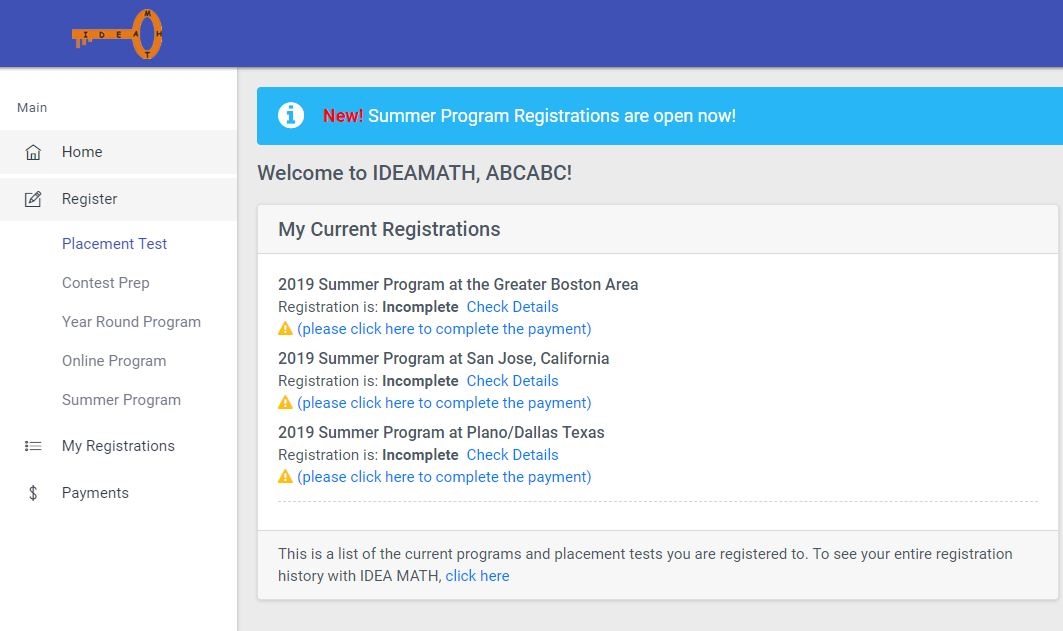
Q3. How do I register for a placement test
Click on Placement Test after click Register in the left navigation pane. In placement test registration window, you need to select test location first, then all upcoming placement tests in that area will be listed for you to make selection.
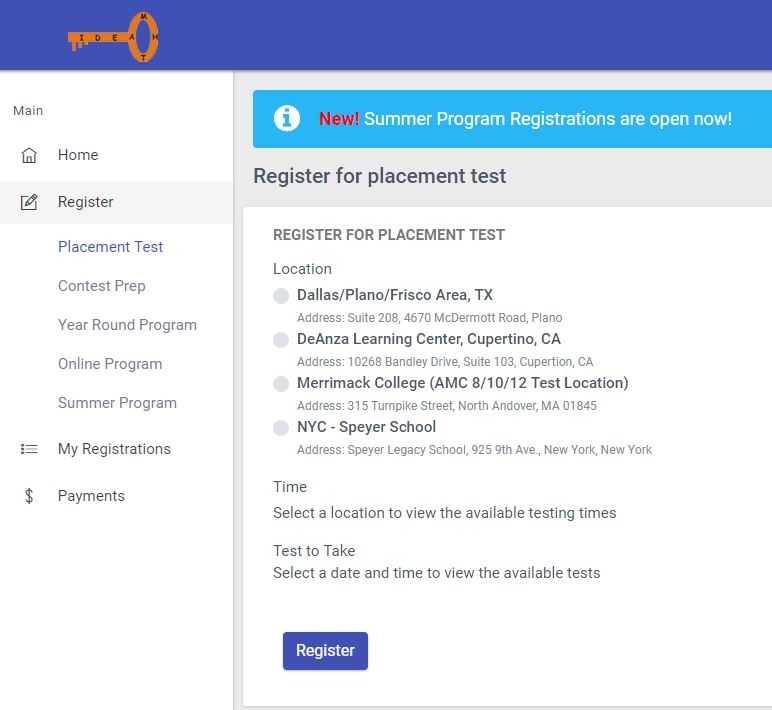
Q4. How do I make a payment
To make a payment, click on Payment in the left navigation pane and the policy acknowledgement is on the left and instruction on how to fill the payment are on the right.
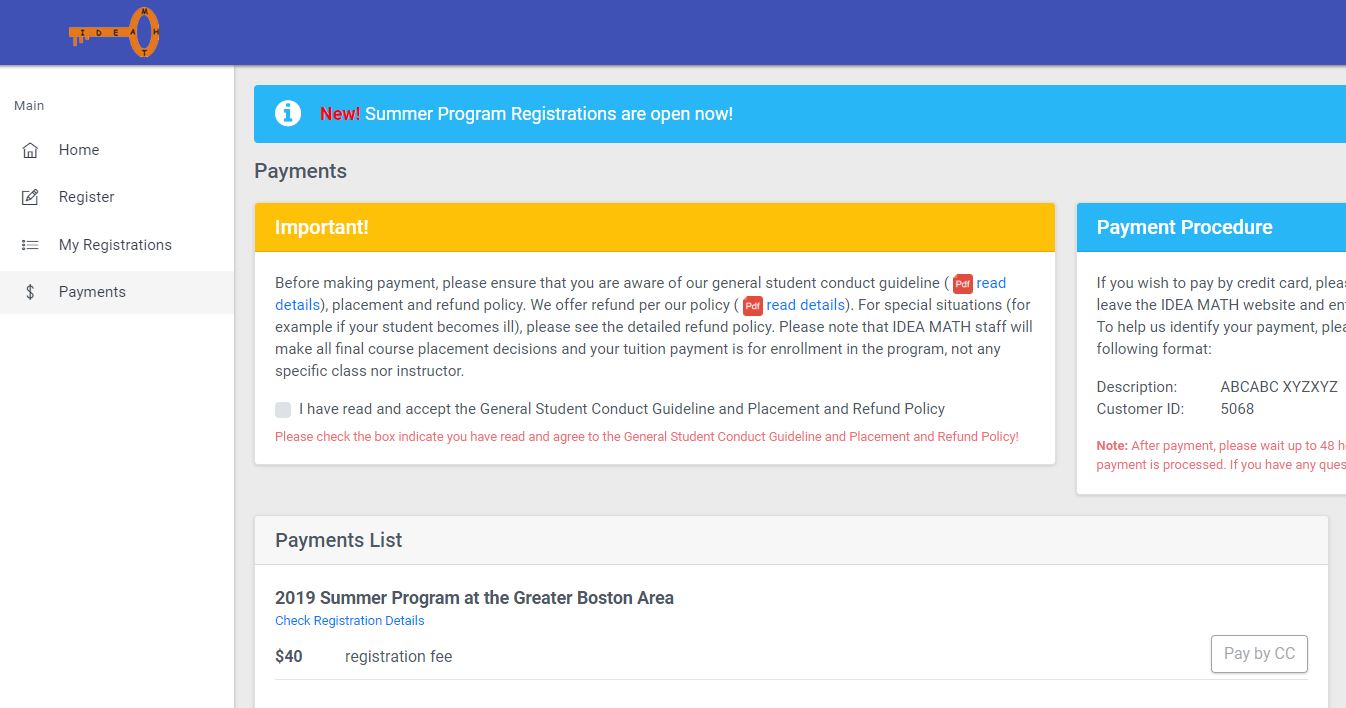
Q4. What to fill when I make a payment
When making a payment via the third party website, please make sure provide the following information: customer ID - please use the student's IDEA MATH ID. Description - please enter the student's name here. Phone Number - please fill in the phone number that you have provide to IDEA MATH.
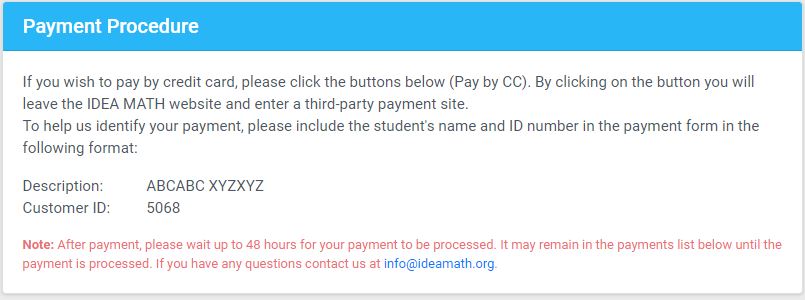
Q6. What do I do if I forget my log in information
At Login/Create An Account page, click on Forget Password, then enter the email address associated with your account.
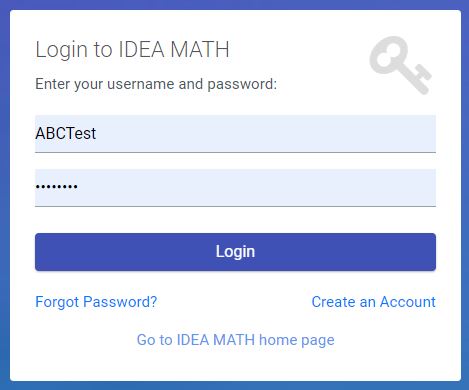
Q7. How do I update my profile?
To update your account, click the icon next to your name on the top left corner, select student's info to update personal and academic information, select Account to update log in credential.
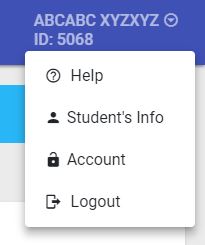
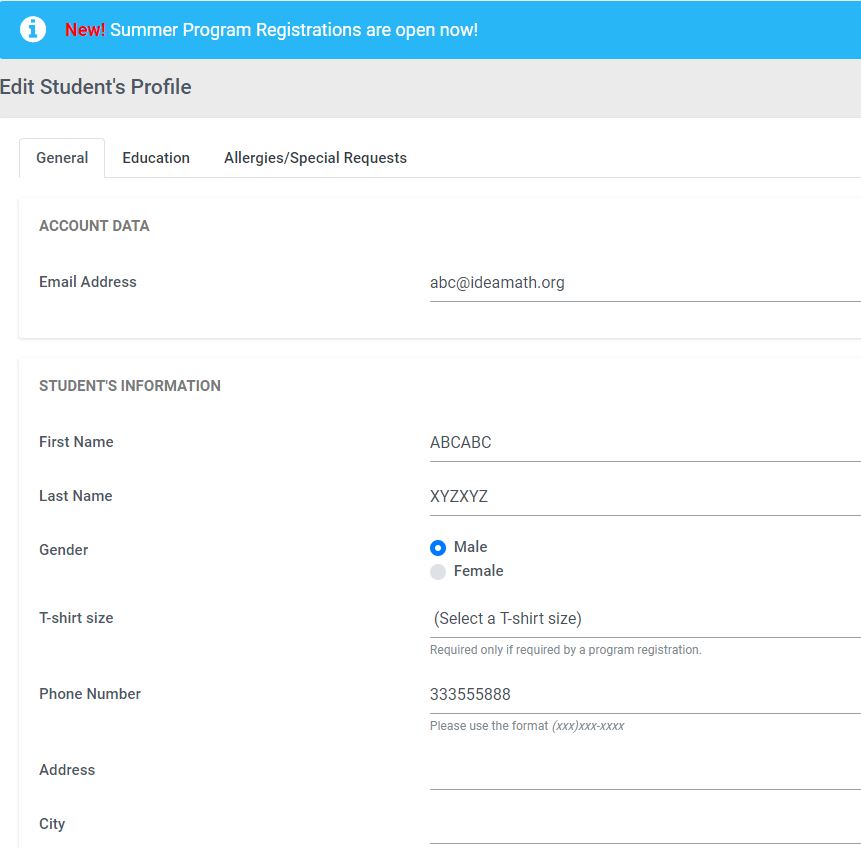
Q8. How do I provide my allergy, dietary and other special request?
Log into your account, click on student's info in the left pane, click allergies/Special Requests
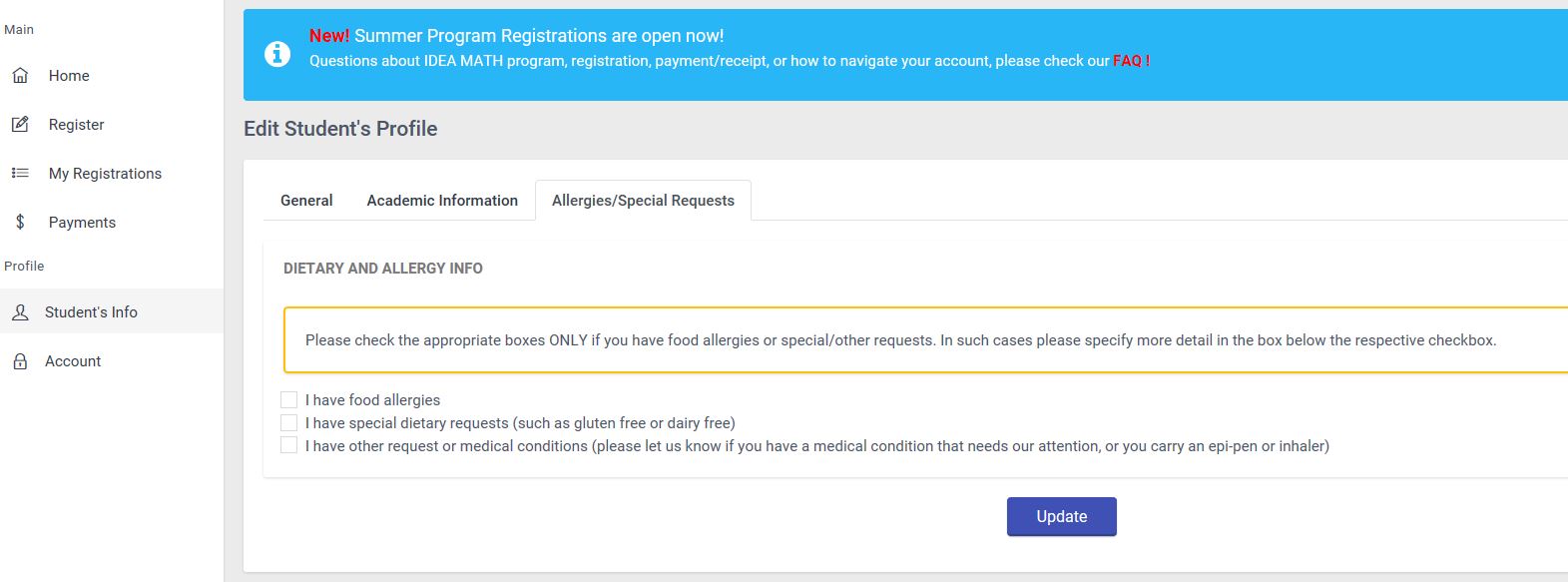
Q9. How to get the receipt and IDEA MATH Tax ID
To get the receipt for your payment, please first log into your account, then go to my registration, click Check Registration Details for the program that you need receipt. In the program registration page, under payment section, click Generate Receipt button (Receipt will be available upon program completion). IDEA MATH ID is included in your payment receipt. View Sample Receipt
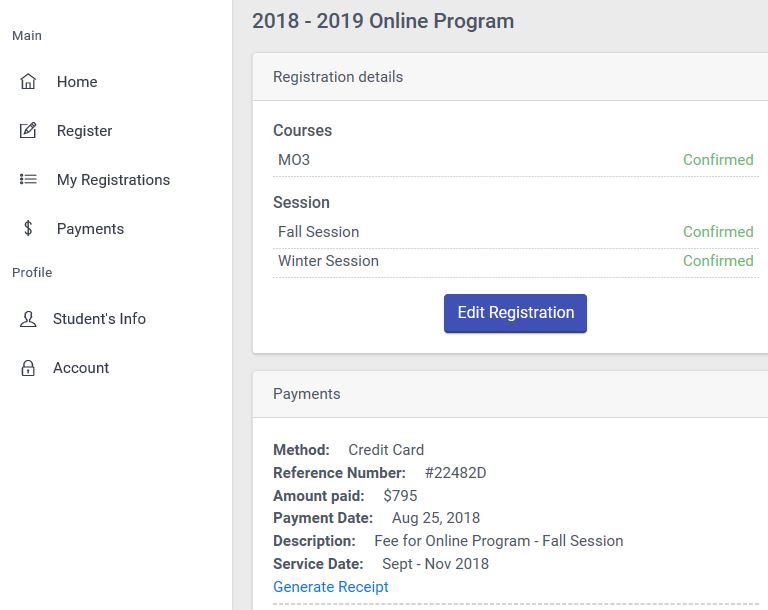
Q10. How to update academic information?
Log into your account, click on Student's Info in the left pane, click Academic information.
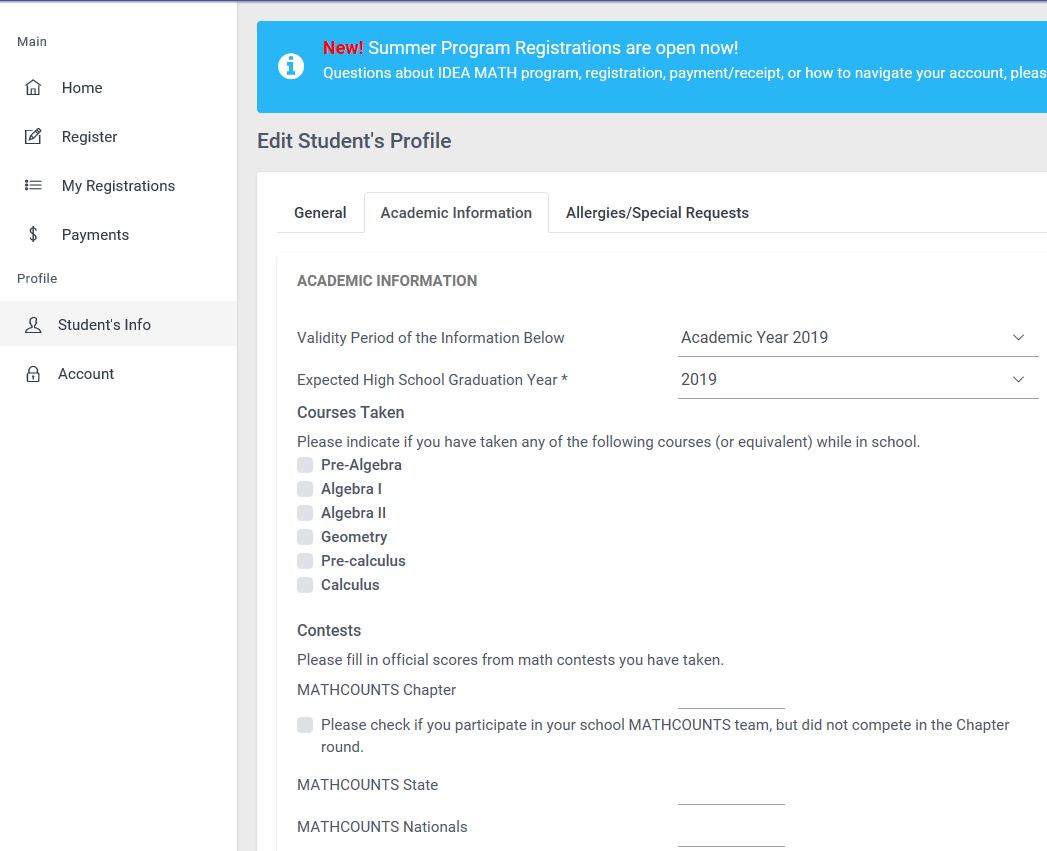
Program Information
Q1: What sets IDEA MATH apart from other programs?
-
Comprehensive and well-tested teaching materials:
The first and one of the most critical and unique assets that IDEA MATH has is its curriculum and teaching materials. IDEA MATHs print-outs, practice tests, and other teaching materials are inspired by a compilation of over a decade of training materials of Phillips Exeter Academy math team, one of the nation's strongest. Not only does the material cover a wide breadth of topics, it is also structured in a clean and thoughtful way, optimized by years of teaching and training. From the basic topics, such as introductory algebra, counting, and geometry, to complex and deeper materials at the Olympiad level and beyond, IDEA MATH's unique teaching material provides the firm ground work for instructors to design a more effective and structured curriculum. -
Strong team of instructors:
The second and equally unique asset is IDEA MATH's strong team of experienced teachers. IDEA MATH's instructors consist of front-line teachers, math team coaches, and former students of the program, all of whom have taught middle school and high school students for several years. As a testament to the flexibility and strength of our teaching, IDEA MATH does not have an entrance exam: we are confident that we can find an appropriate place in our extensive curriculum to fit any student, regardless of his/her background. Our teaching staff is attentive of each student's unique learning style, and will work to tailor each class depending on his or her specific needs. For more information about IDEA MATH's instructors and their credentials, please visit Instructors -
Emphasis on student leadership:
Finally, the third unique asset of IDEA MATH is its emphasis on leadership and behavior. While learning mathematics is the primary focus of the program, it certainly is not its only goal. Instead, the program pays special effort to cultivate in each student an attitude conductive to learning. It is our philosophy that in the long run, cultivating a good mindset far outweighs the benefit of learning a specific material. Simply put, when a student learns a mathematical knowledge, it will serve him/her throughout his/her school years. When a student learns how to be a good learner, it will serve the student for the rest of his/her life.
Concretely, IDEA MATH instructors guide students not to brag about their achievements and rush ahead, but rather to develop patience and maturity. Students are expected to, at the guidance of the instructors, become teachers and leaders themselves by helping their peers. This way, not only does the student develop a deeper understanding of the material, he/she also gains leadership and maturity that will enrich his/her learning experience. -
Focus on schools and the local math community:
In contrast to most programs, IDEA MATH encourages and assists students to go back to their schools and contribute to their local community. For example, IDEA MATH has helped the students and their parents build school teams to participate in local MATHCOUNTS events. Rather than taking the top students from the schools to form a single team, we help the students build their own school teams with their friends and teachers. Through this process, the students can demonstrate leadership, organizational abilities, as well as build a closer relationship with their respective schools, and gain a lot more from the process.
Q2. Are all classes aimed towards math competitions?
IDEA MATH provides extensive curriculum. Our courses are intended for able students desiring to expand their mathematics knowledge beyond regular classroom settings. We emphasize study skills (such as taking notes, oral and written presentations, and listening, observing, and organization etc.). Classes are not aimed exclusively towards math competitions. Instead, IDEA Math is a program that can help students develop logical thinking and problem solving skills in the long run. We have found that our program not only broadens and deepens the students' knowledge and skills in mathematics, but also help them develop perseverance and creativity that will benefit them in the long-run, regardless of their career paths. In general, IDEA MATH curriculum consists of two tracks: school enrichment and extra-curriculum. For details, please visit
Q3. What are the course structures of the program?
The core (computational oriented) courses are PC0, PCA, PC1, PC2, PCX, UC1, UC2, UC3, RC1,
and MO1. These courses provide a comprehensive enhancement of middle/high school math curriculum
(Algebra 1, Algebra 2, Geometry, Pre-Calculus) covering all levels of computational oriented
contests (such as, AMC8, MATHCOUNTS, AMC10, ARML, AMC12, and AIME, etc.) and beyond.
The core (proof oriented) courses are MO1, MO2, and MO3. These courses are designed to guide
highly able (young) students who want to experience advanced mathematics reasoning and/or prepare
for mathematics Olympiads. Selected materials from these three courses form the bases of our
MO1 and MO2 courses in our weekend and summer programs. Gradually, each of the RP1, RP2, RP3
courses will be available in our Year Round Online.
In addition, RC3, EC1, EC2, EP1, EP2, EP3 courses are designed for the most advanced mathematics
contestants. In each of our weekend and summer programs, we will select proper materials from
these courses to work with the most advanced students enrolled in the program on an on-need base.
Q4. What is the general teaching style?
We apply seminar-style teaching in our classes. Class sizes are small (see next questions and its answer) to ensure that students receive plenty of individual attention. Students are expected to work with each other and present their solutions and ideas to the class.
Q5. What is the general class size or teacher/students ratio?
We apply seminar-style teaching in our classes. Class sizes are small (see next questions and its answer) to ensure that students receive plenty of individual attention. Students are expected to work with each other and present their solutions and ideas to the class.
Q6. Is there an admission exam for the program?
We are among the few high-level problem-solving based math programs that do not require an admission test, rather, we emphasize on course placement. (Please see the next question and its answer). This policy stems from our belief that we are able to teach students regardless of their background, as long as they have the right attitude. As a result, instead of an entrance exam, we pay careful attention to the student's academic background information (age, grade level, course taken at school/programs, detailed contest scores, etc.)
Students who are not recently enrolled in IDEA MATH programs shall take placement test. (Each student shall take 1 placement test during an academic year.) You should be able to register for placement test after you login to your account. (You should be able to submit placement test fee. As for program enrollments, only admitted student can make tuition payment.) Please make sure to input accurate, complete, and up-to-date academic and contact info in your account. When we process your placement test fee, we will look into those academic background info and make decisions on placement test level. (We also have placement test level reference on our program pages---please some recommend pages below.) After the placement test, our staff will determine and inform you the course placement level. (You may appeal the decision, and our staff will review your request and make the final course placement decision.)
Starting from 2020, we no longer require for reference letters for applicants new to our program. We reserve the right to require a recommendation letter from a school teacher (preferably math teacher) and student's personal essay on an experience/activity he/she is passionate about. There is not particular form of the recommendation letter. Through these writings, we want to gauge applicants' interests in learning, study habits, and other personal traits (in particular, peer relations and abilities to follow instructions) that are not captured by an exam.
Q7. What determines which class a student is placed into?
Comparing to other extracurricular programs, we put in by far the most efforts to work with
enrolled students (in particular, students new to our program) to find the best fit course
for them so they can gain the most from our programs. We go over students' academic background
(age, grade level, course taken at school/programs, detailed contest scores, etc.) thoroughly,
make our placement/placement test recommendations based on these information, and communicate
these recommendations with the students to reach an agreement. A student's placement will be
based mainly on his/her work in the placement test, background, grade level, and age. Therefore,
it is important for the students (in particular, applicants new to our program) to provide
accurate, detailed and up to date academic background information in their account.
A word of caution: we ask every parent to respect our placement process and decision. At times
in the past, we have received complaints regarding a particular student's placement, usually
accompanied by a request to move a student up. We have no intention to hold a student back if
the student is ready. We firmly believe that parents should not pressure their child to take
a particular level of course, as we have learned from experience that such pressure is always
negative for the student's growth. We ensure you that our staff pays close attention to each
student's placement, and assigns each student to a class that will maximize his/her growth in
a long run. We thank all the parents in advance for their support and understanding in this matter.
Q8. After I (the student) am placed into a class, can I move in between the course during a particular program?
It is possible, but not likely, we put in great effort into placement to minimize such move so students can focus on learning in the proper class without unnecessary distractions. On the other hand, all members of our academic team always keep a close eye on students' work. Related members of our academic team will communicate with each other, act promptly and professionally to help the student to make the transition to another course if they see a move is proper.
Q9. How am I (the student) evaluated? Are there any evaluation tests?
In each program, there will be a test per about every 15 academic hours. The main purposes
of the tests are intended as check points on students commend of the covered concepts, rather
than as evaluations.
There could also be various forms of mock contests or team contests. Scores/results will be
kept only for the purpose of practicing, not for evaluation. We try to use these activities
to help students improve their learning skills, to stimulate students' interest and get them
used to the contest atmosphere, instead of pressuring them through evaluation.
Q10. I (the student) am a retuning student, what course shall I take in the coming program? Can I skip a course?
At the end of each program, we will also give each student a course recommendation for the next class he/she shall take. If there is a long break between the programs, we will also consider student's updated academic background information and make further recommendations.
Q11. Who shall I meet at IDEA MATH?
You will meet other capable peer students (the stated and other nations) who are passionate about mathematics. Many of our students have developed lasting friendships with their IDEA MATH peers, and many have learned a great deal from their peers as well as their instructors.
Q12. What is the difference between IDEA MATH curriculum and what my school curriculum?
More likely, the difference is in the depth of the curriculum. At IDEA MATH, we do not focus on introducing students to higher level math concepts, say calculus. However, we go into much greater depth with topics covered in a middle/high school curriculum. For example, an eighth grade geometry math class may cover the fact that the three medians of a triangle are concurrent at the centroid of the triangle, but our UC2 course will introduce different methods proving this fact, and the connection between these different methods.
Year Round In-person
Q1: Do you still have any opening for your 2nd session program? When can we take the placement test? Where and how much?
A1: Yes, student may join Session 2 without Session 1. We usually require placement test --
placement tests for session 2 are usually scheduled from November to January (different program
locations have different dates -- when you register for placement test, please be aware of test
site locations). You should login to your account first, and then register for placement test --
in that way, your test score will be linked to your account automatically.
You could request for a special placement session, but usually the the placement test for such
special session is pretty high. Based on the info you provided in (0) above, we will try our best
to find a proper placement (to waive the placement test).
Q2: Due to some other activities and/or the lateness of the enrollment, the applicant may have to miss a few classes. is there a way to make it up? Or refund?
A2: When student has an absence, it is student's responsibility to catch up with the class. There
is no refund/rescheduling, etc.
Student can ask the teacher to get a hard copy of the handouts in class and/or ask us for a soft
copy (via email to this account -- make sure to include student full name, IDEA MATH ID,
and actual course). Student can work on the materials and ask questions in the following sessions.
We provide make up class if we have to cancel the class due to special reasons like snow,
our program sponsored group activities like forming IDEA MATH teams participating HMNT., etc.
Q3: Do you assign homework besides the weekly 3-hour classes? If so, usually how much time need to spend to do the homework?
A3: HW is very limited. In general, please visit our program web page FAQ section at https://www.ideamath.org/FAQ.html to get to know our program more.
Q4: If I missed the placement test and I still want to register, what should I do?
A4: Please create IDEA MATH account first, enter all the mathematics background in the student's profile then email to info@ideamath.org to start course placement evaluation. When write to info@ideamath.org, please make sure to include your student's name, ID and which program (location, type of program/courses you are interested).